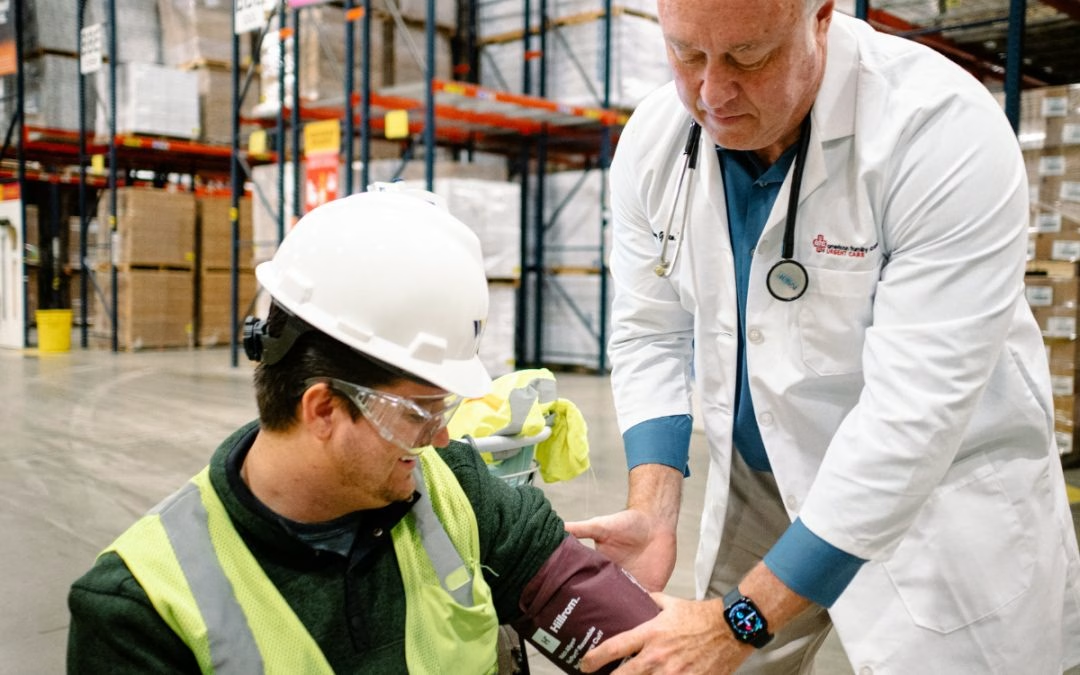
As the colder months approach in Charlotte, staying informed about common illnesses is crucial for protecting your health and the health of your loved ones. One illness that often goes under the radar is walking pneumonia—a milder but still impactful version of pneumonia. Early recognition and treatment are essential to minimizing symptoms and preventing complications. Whether you’re spending time exploring the vibrant local parks or enjoying community events, it’s vital to stay healthy and know when to seek medical care.
This blog will discuss what walking pneumonia is, its symptoms and causes, the best treatment options, and when to visit AFC Southwest Charlotte.
What Is Walking Pneumonia?
Walking pneumonia, or atypical pneumonia, is a lung infection that is generally milder than traditional pneumonia. Unlike more severe cases of pneumonia that may require bed rest or hospitalization, individuals with walking pneumonia can often continue with their daily activities. However, its symptoms can still cause discomfort and may linger if not treated promptly.
Walking pneumonia is caused by various bacteria, viruses, or even exposure to mold, with the most common bacterial culprit being Mycoplasma pneumoniae. These irritants inflame the air sacs in the lungs, leading to mild but persistent respiratory issues.
Symptoms of Walking Pneumonia
The symptoms of walking pneumonia can vary from person to person and often develop gradually. Common signs to watch for include:
- Cough: Often persistent and may produce mucus.
- Sneezing: Accompanied by nasal congestion.
- Headache and body aches: Generalized discomfort or mild pain.
- Fever: Low-grade, though higher fevers can occasionally occur.
- Chest congestion: A feeling of tightness in the chest.
- Sore throat: Irritation or inflammation, especially in the morning.
- Fatigue: Feeling unusually tired or drained.
Although these symptoms are typically mild, they can escalate into more serious pneumonia in vulnerable individuals, such as young children, older adults, or those with weakened immune systems.
Common Causes of Walking Pneumonia
Walking pneumonia can be triggered by:
- Bacteria: Mycoplasma pneumoniae is the leading bacterial cause.
- Viruses: Certain viruses, including those causing colds and influenza, may lead to walking pneumonia.
- Mold exposure: Prolonged exposure to mold spores can irritate the lungs and lead to infection.
The incubation period for walking pneumonia ranges from two to four weeks, meaning you can spread the illness to others before you even realize you are sick.
Preventing Walking Pneumonia
Taking proactive steps can significantly reduce your risk of developing walking pneumonia:
Get a flu shot: Influenza is a common precursor to pneumonia. By getting vaccinated, you can lower your risk of complications.
Practice good hygiene: Wash your hands frequently, disinfect shared surfaces, and avoid close contact with sick individuals.
Stay healthy: Maintain a strong immune system by eating a balanced diet, exercising regularly, and getting enough sleep.
These measures are especially important for those with preexisting conditions like asthma or for those who care for young children and older adults.
How Walking Pneumonia Is Diagnosed
When you visit our clinic, your healthcare provider will begin with a thorough physical examination. This often includes listening to your lungs for signs of wheezing or other irregularities. To confirm a diagnosis, additional tests may include:
- Chest X-rays: To identify mucus or inflammation in the lungs.
- Blood tests: To check for markers of infection.
- Throat swabs: In some cases, to determine if bacteria or a virus is the cause.
Accurate diagnosis is essential to rule out more severe conditions and guide appropriate treatment.
Treatment Options for Walking Pneumonia
The treatment for walking pneumonia depends on its cause:
- Bacterial pneumonia: Antibiotics are prescribed to clear the infection.
- Viral pneumonia: Over-the-counter medications can help manage symptoms while the illness runs its course.
- Symptom management: Cough suppressants, fever reducers, and hydration can alleviate discomfort.
Most cases of walking pneumonia resolve within four to six weeks, though symptoms can persist longer without proper care.
When to Seek Medical Care at AFC
While walking pneumonia is generally mild, it’s important to seek medical attention if you experience:
- Worsening symptoms, such as high fever or difficulty breathing.
- Chest pain that doesn’t subside.
- Persistent fatigue or cough that interferes with daily life.
- Symptoms lasting more than a few weeks without improvement.
Here at AFC Southwest Charlotte, our experienced providers offer same-day diagnosis and treatment for walking pneumonia. With on-site labs and X-rays, we can quickly determine the cause of your symptoms and recommend the best course of action.
Stay Healthy This Season with AFC Southwest Charlotte
Walking pneumonia may be milder than traditional pneumonia, but it can still disrupt your routine and lead to complications if left untreated. By recognizing the symptoms early and seeking prompt care, you can get back to enjoying all that Southwest Charlotte has to offer.
Our clinic is open seven days a week with extended hours to make healthcare convenient for you and your family. Visit AFC SW Charlotte for fast, reliable treatment—you don’t need an appointment, just walk in or pre-register online today!


